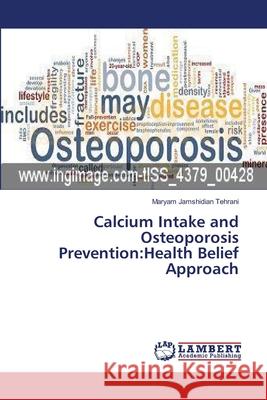Calcium Intake and Osteoporosis Prevention: Health Belief Approach » książka
Calcium Intake and Osteoporosis Prevention: Health Belief Approach
ISBN-13: 9783659239205 / Angielski / Miękka / 2014 / 144 str.
Many people appear to be unaware of the risk factors and preventive behaviors associated with osteoporosis. Education to increase awareness is identified as being paramount in helping to prevent this disease. Present study examined the effectiveness of a three-month osteoporosis educational prevention program based on the Health Beliefs Model on knowledge, health beliefs, and practice about calcium intake, among young Iranian female. Participants in the intervention group were exposed to a three-month multi-component educational program including a group lecture, self study materials, individual face to face consultation, emails and phone reminders. Osteoporosis knowledge, beliefs, self-efficacy, and calcium intake, were assessed at baseline and at the end of three months follow up. This study showed poor levels of knowledge regarding osteoporosis among Iranian young female students at baseline. The intervention program was effective in improving knowledge, beliefs, and self-efficacy to take action about calcium intake as a lifestyle factor for the prevention of osteoporosis in young women.
Many people appear to be unaware of the risk factors and preventive behaviors associated with osteoporosis. Education to increase awareness is identified as being paramount in helping to prevent this disease. Present study examined the effectiveness of a three-month osteoporosis educational prevention program based on the Health Beliefs Model on knowledge, health beliefs, and practice about calcium intake, among young Iranian female. Participants in the intervention group were exposed to a three-month multi-component educational program including a group lecture, self study materials, individual face to face consultation, emails and phone reminders. Osteoporosis knowledge, beliefs, self-efficacy, and calcium intake, were assessed at baseline and at the end of three months follow up. This study showed poor levels of knowledge regarding osteoporosis among Iranian young female students at baseline. The intervention program was effective in improving knowledge, beliefs, and self-efficacy to take action about calcium intake as a lifestyle factor for the prevention of osteoporosis in young women.











